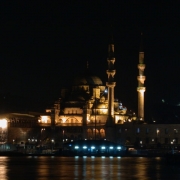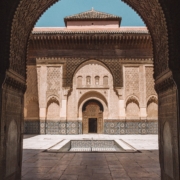Justice, Nonaggression, and Military Ethics in Islam – Asma Afsaruddin
“In the sixteenth century, the Spanish jurist Francisco de Vitoria helped de- velop the principle of noncombatant immunity in Europe, which today has become a hallmark of modern international law. This principle is foregrounded in the Geneva Conventions and their Additional Protocols enacted in 1949 that form the core of in- ternational humanitarian law, as well as in the Nuremberg Charter of 1943 that deals with war crimes. In his legal work, de Vitoria explicitly identified those who should be considered noncombatants and given protection during military combat: women and children, agricultural laborers, travelers, and the civilian population in general. In his conception of a universal law, the seventeenth-century Spanish jurist Las Casas similarly emphasized the need to protect women and children, religious functionaries, serfs, and other noncombatants during war. Interestingly, the requirement that these categories of noncombatants should be protected during armed combat was already well entrenched within the Islamic law of nations or international law (known as siyar in Arabic) that had crystallized by the eighth century”









